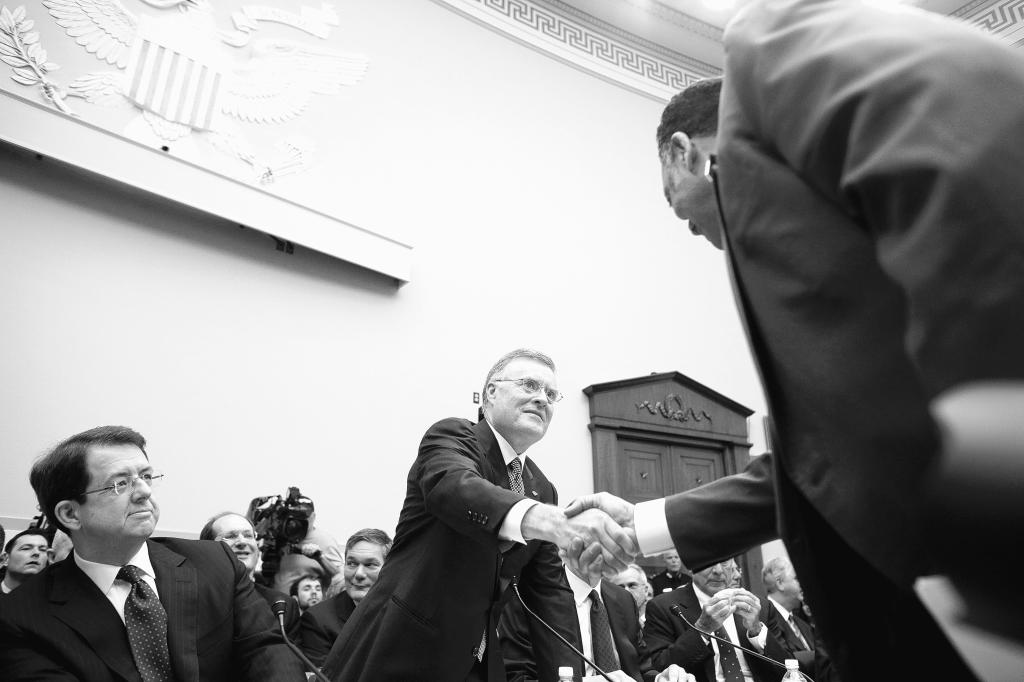NEW YORK — The Federal Reserve must reveal documents identifying financial companies that received Fed loans to survive the financial crisis, a federal appeals court ruled Friday.
A panel of the 2nd U.S. Circuit Court of Appeals in Manhattan said in two separate opinions that such information isn’t automatically exempt from requests under the Freedom of Information Act.
Cases were brought by News Corp.’s Fox News Network LLC and Bloomberg L.P. The two companies sought details about loans that commercial banks and Wall Street firms received and the collateral they put up. The appeals judges had received written arguments on behalf of other news agencies, including The Associated Press.
The Fed argued that if it identified banks that drew emergency loans, it could cause a run on those institutions, undermine the loan programs and potentially hurt the economy.
Lower-court judges were split on the issue.
The Federal Reserve said it is studying Friday’s ruling.
“We are considering our options for reconsideration or appeal,” said Fed spokeswoman Michelle Smith.
Sen. Byron Dorgan, D-N.D., who has pressed the Fed to release details about the loan programs, urged Chairman Ben Bernanke on Friday to “immediately” identify the firms that drew emergency loans and their amounts.
In the Fox case, a three-judge panel concluded that the documents should be available to review by news organizations and the public. A federal judge had agreed with the Fed that the documents belonged to the Federal Reserve banks and were off limits to the public under the Freedom of Information Act.
But on Friday, the appeals court said the Fed must produce all relevant documents.
In the Bloomberg case, the court rejected the Fed’s argument that identifying the banks and providing other information would harm them and discourage other distressed banks from seeking the Fed’s help. The court said the disclosure requirements under FOIA are up to Congress, not the court, to change
The Fed has been fighting the matter in court and on Capitol Hill. Lawmakers, picking up on public anger over the Fed’s role in bailing out Wall Street, have demanded the Fed be more open about its operations.
Offering an olive branch, Bernanke in late February said the Fed would support legislation to identify companies that used the Fed’s special lending facilities — “after an appropriate delay.” A delay in identifying the companies would help discourage investors from viewing a company as having financial troubles, he said.
But Bernanke said the confidentiality of banks drawing emergency loans from the Fed’s “discount window” must be preserved. The Fed acts as lender of last resort for banks that can’t get money from private sources.
The Fed’s discount window is a permanent fixture. That’s in contrast to a series of special lending programs set up during the financial crisis from which banks and other financial institutions could borrow. Virtually all those programs have been dismantled now that financial and economic conditions are improving.
Still, all those emergency efforts swelled the Fed’s balance sheet to $2.29 trillion, more than double from where it stood before the crisis struck.
Send questions/comments to the editors.



Success. Please wait for the page to reload. If the page does not reload within 5 seconds, please refresh the page.
Enter your email and password to access comments.
Hi, to comment on stories you must . This profile is in addition to your subscription and website login.
Already have a commenting profile? .
Invalid username/password.
Please check your email to confirm and complete your registration.
Only subscribers are eligible to post comments. Please subscribe or login first for digital access. Here’s why.
Use the form below to reset your password. When you've submitted your account email, we will send an email with a reset code.